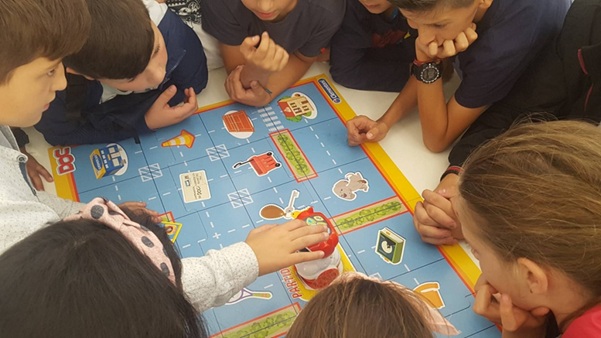Early childhood education is a critical period for laying the foundation of cognitive, social, and emotional development. While traditional teaching methods such as storybooks, flashcards, and structured activities remain valuable, educational board games are gaining recognition as powerful tools for holistic learning. These games are not only engaging but also support essential skills in young learners in fun, interactive ways.
1. Why Board Games Matter in Early Childhood Education
Board games combine play with learning, making abstract concepts more tangible. Designed for children ages 3 to 7, these games promote hands-on learning, critical thinking, and problem-solving skills. By providing opportunities to interact with peers and adults in structured scenarios, board games foster social skills, such as taking turns, sharing, and communicating effectively.
Studies indicate that children participating in interactive games often show enhanced focus, memory retention, and emotional control. In essence, board games transform learning into a playful experience that balances education and enjoyment.
2. Key Benefits of Board Games for Young Learners
a. Cognitive Development
Board games often involve counting, pattern recognition, color and shape identification, and basic strategic thinking. Games like Snakes and Ladders or Memory Matching enhance mathematical reasoning, memory recall, and critical thinking skills.
b. Language and Communication Skills
Games requiring players to read instructions, narrate actions, or explain choices strengthen vocabulary, storytelling abilities, and comprehension. Conversational games also promote listening skills and turn-taking, helping children express themselves clearly and confidently.
c. Emotional and Social Development
Winning and losing gracefully teaches children about patience, empathy, and resilience. Collaborative board games, like Cooperative Treasure Hunt Games, encourage teamwork and problem-solving while nurturing self-esteem and confidence.
d. Motor Skills and Coordination
Board games that involve moving pieces, rolling dice, or spinning spinners help develop fine motor skills and hand-eye coordination. Manipulating small objects in gameplay also supports spatial awareness and dexterity.
3. Types of Educational Board Games for Early Childhood
a. Counting and Number Games
These games help children recognize numbers, practice simple arithmetic, and understand numerical relationships. Examples include counting boards, dice games, and simple addition or subtraction games.
b. Word and Literacy Games
Alphabet puzzles, word-matching games, and phonics-based board games reinforce early literacy skills, enabling children to identify letters, form words, and improve reading readiness.
c. Memory and Matching Games
Games that require remembering patterns, images, or sequences improve concentration and short-term memory. Matching pairs, picture recall, or sequencing games are ideal for this age group.
d. Cooperative Games
Cooperative board games teach teamwork and shared decision-making. Players work together to reach a common goal, fostering communication, negotiation, and collaboration.
e. Creative and Role-Playing Games
Games that involve storytelling, character roles, or imaginative scenarios encourage creativity and problem-solving. These games can also build empathy as children explore different perspectives.
4. Tips for Selecting Board Games for Young Children
- Age Appropriateness: Ensure the game aligns with the child’s developmental stage. Check for small pieces that could be choking hazards for younger children.
- Simplicity: Early learners benefit from games with straightforward rules and clear objectives.
- Engaging Design: Bright colors, fun themes, and tactile elements help maintain attention and interest.
- Educational Value: Choose games that teach concepts relevant to cognitive, social, or emotional development.
- Replayability: Games that allow multiple ways to play or varying levels of difficulty encourage repeated engagement.
5. Incorporating Board Games in the Classroom
Teachers can integrate custom board games into daily routines or structured learning sessions. Using games as reinforcement after a lesson helps consolidate knowledge while keeping children motivated. Group play encourages peer interaction and provides opportunities for teachers to observe social behaviors, problem-solving strategies, and emotional responses.
Conclusion
Board games are more than just entertainment—they are essential educational tools that nurture cognitive, social, and emotional development in early childhood. By carefully selecting games that balance fun and learning, parents and educators can create engaging experiences that support foundational skills and lifelong learning habits.
Investing in educational board games for early learners transforms playtime into meaningful learning, laying the groundwork for confident, creative, and socially adept children.









